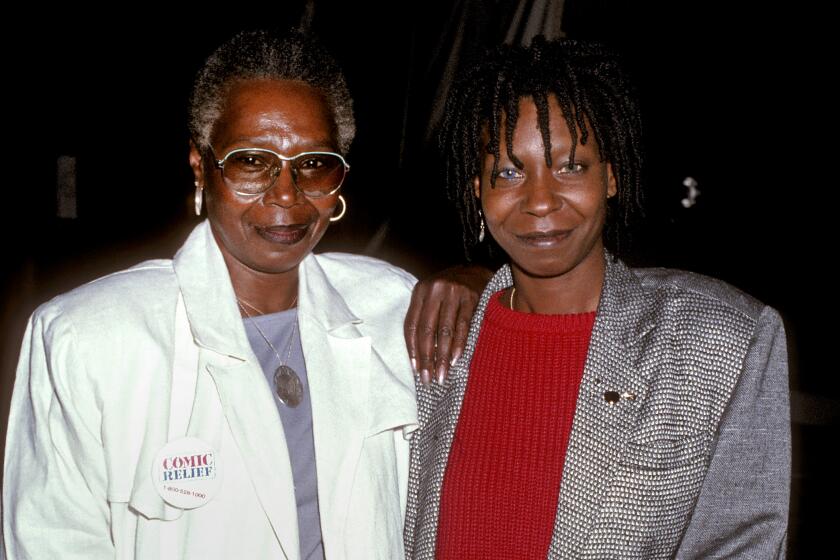Has America turned into a spoof of itself?

Did postmodernism kill literary satire? I’ve been wondering about this in the wake of the terror attacks on the French satirical newspaper Charlie Hebdo, known for its caricatures of the prophet Muhammad; one appears on the cover of the current issue, brandishing a placard that declares “Je suis Charlie” while shedding a tear.
There’s something direct and provocative in such an image, which is, of course, what comics do. Literature unfolds more slowly, over pages, over time. Among the tools it requires is an elaborate self-consciousness — which is also, it turns out, a key component of postmodernism.
Is it coincidence, then, that the rise of postmodernism in the 1970s overlaps almost exactly the decline of satire? Is it coincidence that after the turmoil of the late 1950s and 1960s, a period during which Terry Southern, William S. Burroughs and Joseph Heller (among others) portrayed, with bilious exactitude, the excesses and hypocrisies of empire America, we turned inward, forgoing satire for irony?
I think of Southern’s 1958 novel “Flash and Filigree,” with its vicious sendup of television culture: a taping of the popular quiz show “What’s My Disease?” featuring a panel that includes “a prominent woman columnist, a professional football coach, an actress, and a Professor of Logic from the University of Chicago,” questioning a contestant to determine his or her ailment.
“‘Is it elephantiasis?’ demanded the Professor. … ‘Yes, it IS elephantiasis!’ and at that moment, as the shroud was dropped and the contestant revealed to them all, the audience took in its breath.”
It’s a stunning moment, although it hardly seems satirical any longer, in a world where people obsess over the Kardashians and “Duck Dynasty.” This, in turn, suggests a bigger problem — that, as the literary critic Harold Bloom once insisted, “In the United States, satire is no longer possible. America has turned into a satire of itself.”
Bloom was right: How does one satirize a culture in which the same politicians who a decade ago demanded French fries be renamed freedom fries in the congressional cafeteria now upbraid the president for not going to Paris?
“Even Adolf Hitler thought it more important than Obama to get to Paris,” Republican Rep. Randy Weber of Texas tweeted this week, conveniently overlooking the fact than when Hitler arrived in the French capital in 1940 it was as a conqueror. (Weber subsequently apologized.)
Such doublespeak is straight out of Heller; “It was almost no trick at all,” he wrote in “Catch-22,” “… to turn vice into virtue and slander into truth, impotence into abstinence, arrogance into humility, plunder into philanthropy, thievery into honor, blasphemy into wisdom, brutality into patriotism, and sadism into justice. Anybody could do it; it required no brains at all. It merely required no character.”
And yet, if this was revelatory — or, at least, new to public discourse — in 1961, when Heller’s novel appeared, it seems like old news now, common knowledge, the kind of dislocation we all feel at the level of our bones.
Satire, after all, is a public art. It is about revealing larger social truths by pillorying the pieties on which a hypocritical society relies. As for which society, it doesn’t matter. All of them tell their own lies. It’s also about pushing the extremes, the boundaries, as a way of reflecting what we sense is true but can’t quite articulate.
Part of the success of “Catch-22” is that it revealed the absurdity of military thinking, an absurdity that would, just a few years later, play out in the debacle of Vietnam. Paddy Chayefsky’s 1976 film, “Network” (not a book, but the expression of a writer’s vision), did something similar for television; can we listen to Howard Beale today without thinking of the prescience of his diatribes?
This is not to imply that satire is predictive, any more than science fiction. Rather, it is a matter of paying attention, of peeling back the public narrative. In his 1945 novel “Memoirs of a Shy Pornographer,” Kenneth Patchen skewers postwar literary pretensions by imagining a machine that writes books, and another that reviews them for the New York Times. Do we even need to say that, 70 years later, in a world of bots and tweets and news feeds, such an idea hardly seems outrageous?
What Patchen shares with Heller and Chayefsky (or Southern, for that matter) is emotion; he satirizes the culture because the culture matters to him.
“Let me tell you,” he writes in one particularly heartfelt passage, “that it exceeds the wildest insanity to accept some of the things which the world takes for granted — … That men should starve each other. … That men should hate one another because their skins are of a different color. … That men should kill one another! … Wars and the plague-sores left by wars shall not be ended until mankind turns from the murder which is practiced everyday by everyone.”
This is the whole idea of satire, to fuse naïveté with righteous indignation, to stand up for idealism (that discredited notion) by exposing our collective idiocies. Irony stops well short of that, serving, David Foster Wallace argues in his 1993 essay “E Unibus Pluram,” “an exclusively negative function … critical and destructive … singularly unuseful when it comes to constructing anything to replace the hypocrisies it debunks.”
Wallace, of course, understood these tensions; irony is the vernacular of his early books. And yet at some point, he acknowledged, it ceases to be enough.
There’s little irony in Jon Stewart or Stephen Colbert or the writers of the Onion, who are, I want to tell you, the superior satirists of the moment: angry, incredulous, engaged. The same is true of George Saunders, Paul Beatty and Percival Everett — who still work a satiric landscape — but they are more the exception than the rule.
On the one hand, this brings us back to Bloom and his belief in a self-satirizing culture, in which reality is its own lampoon. At the same time, it highlights the insularity of too much contemporary writing, in which we are asked to see the world, again and again, through an individual’s eyes as opposed to a collective frame.
Think of all the reactions to Charlie Hebdo and then identify the ones that really stick. I can come up with barely a handful: Laila Lalami in the Nation, Joe Sacco and Hari Kunzru in the Guardian, each arguing for nuance and complexity. “I don’t want to read about how ‘we’re all’ anything,” Kunzru cautions, “because wishing away complexity is inadequate and juvenile.”
Whatever else it is, that’s a comment on saturation, the demands of a culture in which everyone feels they should respond to everything. More to the point, it’s a reminder of the challenges of writing satire in a world that functions at the speed of news.
Or, as Heller observed, more than a little bitingly, in his 1988 novel “Picture This”: “Mankind is resilient: the atrocities that horrified us a week ago become acceptable tomorrow.”
More to Read
Sign up for our Book Club newsletter
Get the latest news, events and more from the Los Angeles Times Book Club, and help us get L.A. reading and talking.
You may occasionally receive promotional content from the Los Angeles Times.







